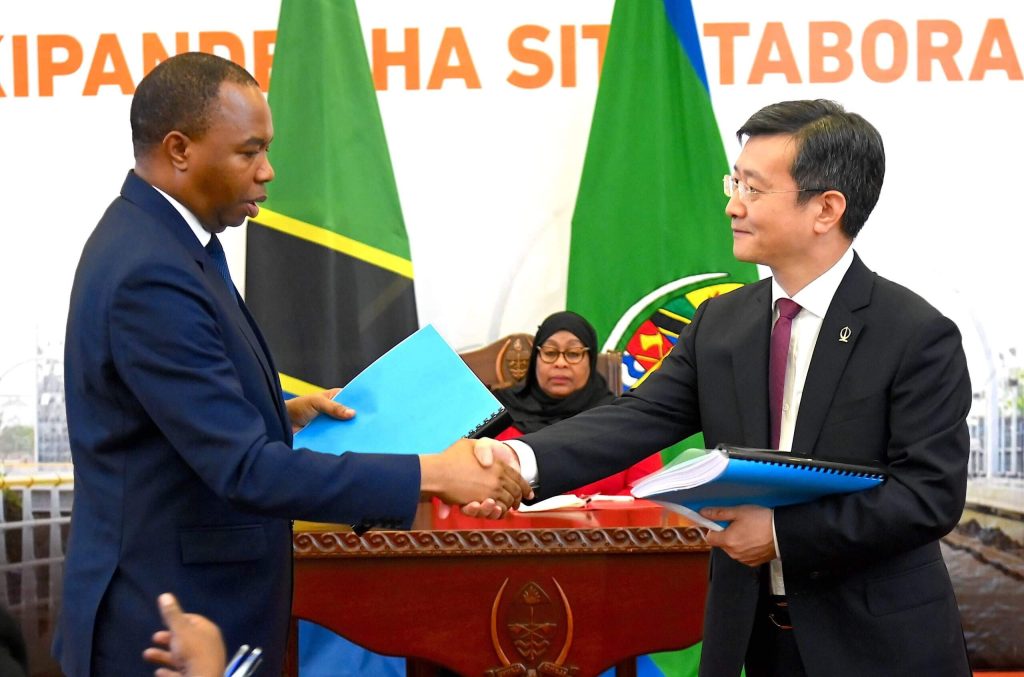Tanzania is one of the most preferred destinations for Foreign direct investment in Africa (it counts among Africa’s ten biggest recipients of FDI). According to UNCTAD’s 2022 World Investment Report, FDI inflows to Tanzania reached USD 922 million in 2021 and increased from the previous year (USD 685 million).
In the same period, the total stock of FDI stood at USD 17.1 billion, around 24.4% of the country’s GDP. The manufacturing, mining, and energy sectors are Tanzania’s primary recipients of FDI. Other sectors, such as agriculture, tourism, and infrastructure, have also attracted FDI in recent years.
The country’s direct investors are China, India, Kenya, the United Kingdom, Mauritius, Oman, the United Arab Emirates, Canada, the United States, the Netherlands, South Africa, and Germany. As the country continues to integrate into the global economy, the role of FDI in shaping its economic trajectory cannot be understated.
Foreign Direct Investment is the investment made by a foreign entity, either an individual or a business, into the assets or companies within Tanzania. Over the past two decades, Tanzania has witnessed a steady influx of FDI, primarily driven by mining, agriculture, telecommunications, and manufacturing.
Foreign Direct Investment and Tanzania’s Economic Outlook
Economic Diversification: FDI has played a pivotal role in diversifying Tanzania’s economy. While traditionally reliant on agriculture, foreign capital has bolstered mining, tourism, and telecommunications.
FDI inflows to the country were concentrated in three main activities: accommodation and food services, mining and quarrying, and finance and insurance, which accounted for 61.5 percent of the total inflows in 2017. Accommodation and food services became prominent in attracting FDI inflows in 2017, attributed mainly to expansion in accommodation and food service facilities following an increase in tourism activities
Job Creation: Foreign companies, through their investments, have created numerous job opportunities, leading to employment generation and skill development. Increasing FDI can enable Tanzania to raise productivity and expand high-value-added activities.
Recent studies show that FDI can generate productivity spillovers, which in turn could create decent jobs and a sustained impact on growth and development in Tanzania. Therefore, making it easier and more attractive for foreign firms to invest in Tanzanian manufacturing and high-value-added services should be a priority for governments and international donors.
Technological Transfer: FDI often brings with it advanced technologies and practices. This technology transfer has been instrumental in modernizing various sectors of Tanzania’s economy.
Infrastructure Development: Many foreign investments, especially in sectors like energy and transportation, have led to significant infrastructure development, laying the foundation for broader economic growth. Tanzania has made considerable progress in reforming its trunk roads and improving the quality of the road network.
The country has also seen significant gains in ICT networks and has one of Africa’s most competitive domestic air transport sectors. The power sector poses Tanzania’s most serious infrastructure challenge.
Boost to Domestic Industries: The presence of foreign companies stimulates the local supply chain. Local businesses benefit by supplying goods and services to these foreign entities.
Government Revenues: FDI contributes to government revenues through taxation, royalties, and other levies, which can then be reinvested into public services and infrastructure.
The Downside of Foreign Direct Investment
A significant portion of FDI is directed towards the extraction of natural resources. This can lead to an over-reliance on commodities, making the economy vulnerable to global price fluctuations. As of 2021, nearly 500 active licenses explored over 40 types of minerals in the country.
Unsurprisingly, mining activities constitute a prominent industry in Tanzania’s economy. Mining and quarrying accounted for roughly seven percent of the Tanzanian GDP 2020.
The sector employed more than 310,000 Tanzanians, while the country’s earnings with mineral exports surpassed 3.6 billion U.S. dollars. Some foreign investments, especially in mining and agriculture, have raised environmental concerns, impacting local ecosystems.
Also, rapid economic changes driven by FDI can sometimes lead to social unrest or cultural shifts, which must be managed sensitively. While FDI brings in capital, there’s also the risk of capital flight, where profits earned in Tanzania are repatriated back to the investor’s home country.
The Way Forward: Maximizing the Benefits
A robust regulatory framework and a clean and stable regulatory environment can attract quality foreign investments and ensure they align with the country’s long-term goals. Skills development and investing in education and training can ensure that the Tanzanian workforce is equipped to capitalize on the opportunities presented by FDI.
Environmental and social safeguards: Implementing stringent environmental and social guidelines can ensure that FDI does not come at the cost of ecological or cultural integrity.
Promoting and encouraging sustainable investments in sectors like renewable energy can ensure long-term economic and environmental benefits.
Foreign Direct Investment has undeniably played a transformative role in Tanzania’s economic landscape. While it brings with it immense opportunities, the challenges it presents cannot be overlooked. For experts in the field, Tanzania’s FDI journey offers rich insights into the interplay of global capital and local economies.
It’s a testament to the nation’s resilience and adaptability for general readers. As Tanzania continues to navigate the complex world of FDI, its experiences serve as a valuable lesson for other emerging economies on the global stage.

